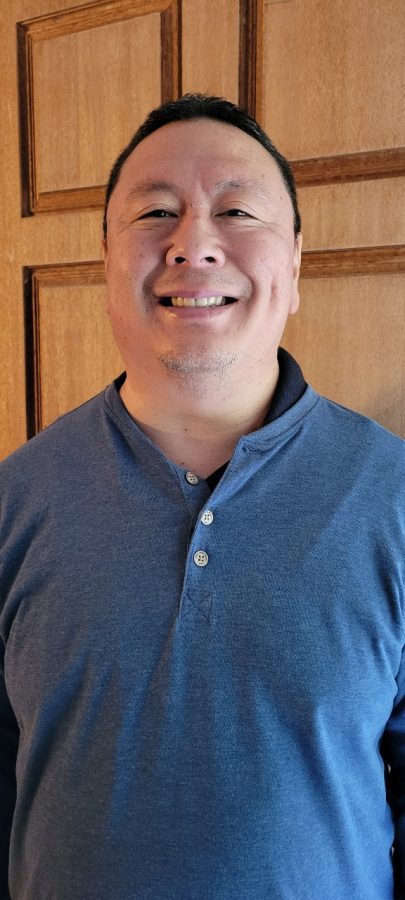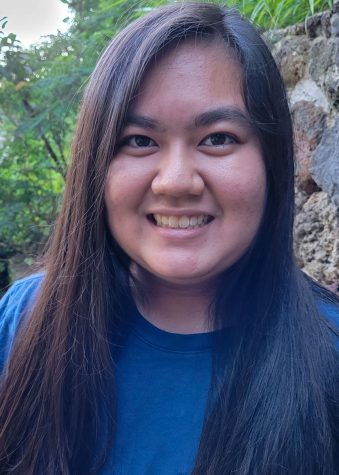Triumph over trials… with a new kidney!
Burt Nagayama celebrates the one-year anniversary of his successful kidney transplant.
May 26, 2022
“My doctor told me, ‘There’s no if or buts, your kidney is going to fail,’” Burt Nagayama said.
In December 2018, Burt was told that his “best bet” was getting a new kidney. He and his wife started looking into how to get him on the transplant waitlist.
“I have diabetes and I think that caused my kidneys to fail,” Burt said. “So I had to juggle both of that: my diabetes and my dialysis.”
And in September 2019, Burt got on the waitlist.
According to a 2019 study, about 100,000 Americans were placed on the waitlist managed by the United Network for Organ Sharing (UNOS). The same source reported that 12 people die each day waiting for a transplant.
“They told him he would have to wait about five years,” Kristine Nagayama said. “But he got it in two and a half years.”
Kristine is Burt’s wife and advocate. They married in 2011; in December 2018, they discovered that Burt had kidney failure.
“They had to wait a long time, but they were determined,” Janis Yahiku said.
Janis is Burt Nagayama’s mother-in-law and she got to watch firsthand the struggles and experience the lifestyle changes that needed to occur.
However, the steps toward being eligible to get on the waitlist meant that Burt required dialysis three times a week, as well as yearly checkups from the cardiologist, pulmonologist, and the dentist. Each dialysis appointment lasted around four hours.
“[Dialysis] Three times a week, every Tuesday, Thursday, and Saturday,” Burt said, before joking, “No holidays.”
With the dialysis, new dietary schedules were necessary. Kristine makes Burt’s meals, which before the transplant couldn’t include uncooked meats, seafood, or certain fruits. Foods that had high levels of potassium, phosphorus, or sodium were strictly off-limits.
“We have to go according to his food safety guide,” Kristine said. “And everything is by a certain time because he has to take his medication at certain times of the day. Some are with food and some are on empty stomachs so all his meals are timed at certain times of the day.”
The doctors also put strict restrictions on water. Burt was only allowed three to four cups of water a day, which he described as the “hardest” adjustment to make.
He received his new kidney in May 2021. His lifestyle changed again post-transplant.
“[Diet is] less restrictive and of course, now they want me to drink three liters of water per day because they want to keep the kidney in a wet environment,” Burt said. “It works best when there is a lot of water in my system.”
However, he still has to watch his potassium levels because all food has to be thoroughly cooked to avoid any bacteria from damaging his new kidney.
“I used to cook once for the whole week but now transplant doesn’t want him to eat anything more than three days old,” Kristine commented.
The reason for that is that while kidney transplants can be successful, the kidney isn’t a perfect match for the receiver. Burt takes anti-rejection medicine, but the suppressants make him more “susceptible” to skin cancer.
“It [the kidney] matches as best as it can, but it could reject at any time, in the beginning, ten years from now,” Burt said.
Even though there was supposed to be a five-year wait for the Nagayamas, they never felt hopeless. Kristine recalls being “freaked” when Burt first was accepted into the hospital because of low calcium levels, a sign of renal failure.
“What gave me hope was God,” Burt said. “Kept my faith in God that He would heal me. I was, you know, on dialysis and everything. My prayer was, you know, God has already healed me in eternity. So that prayer gave me hope.”
Kristine commented that their friends were more worried about them than they were about themselves.
“We’re kind of a team to keep me on track because I couldn’t have done it without her help,” Burt said. “A lot of things I owe to my wife.”
Janis said that the first year after the transplant was difficult, with the extra precautions required to keep Burt healthy and safe, but that it was “worth it”.
Burt is “grateful” and on May 12, 2022 celebrated his one-year anniversary since the transplant with his family.
“I think I just, you know, wouldn’t be this far without all this support that I’ve gotten from my wife, and from my whole family,” Burt said. “So we just have to keep vigilant moving forward.”



